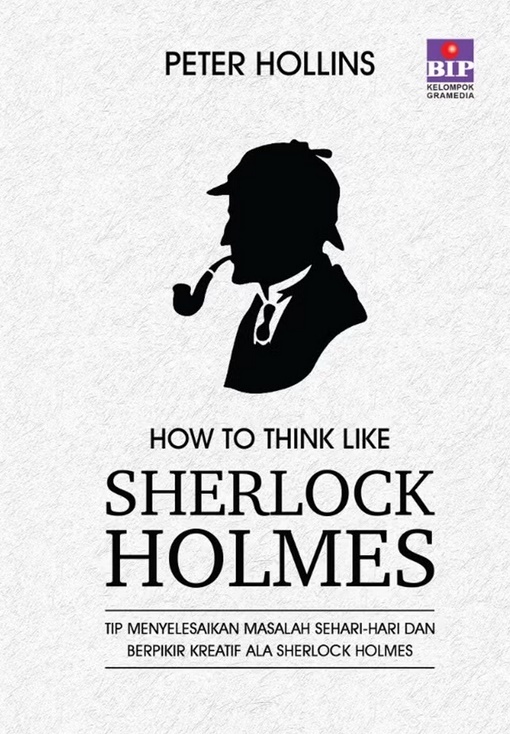What do you think?
Rate this book


198 pages, Hardcover
First published July 31, 2018
I must first confess that I am indeed a huge fan of Sherlock Holmes, in all forms - print, television or theatre. It is not merely because of the charismatic crime solving heroism of Sherlock that I adore the character, but because I am humbled by the fact that he is actually a pigment of imagination of a once living and breathing human being just like us, Sir Arthur Conan Doyle. Just like a marvelous computer programme written by a software engineer that astonishes its users, Sherlock's heroics continue to fascinate readers and fans over the generations.
"Sir Arthur Conan Doyle created the British detective in 1887 in the story A Study in Scarlet. Doyle used the character of Holmes in a total of 60 adventures (four novels and 56 short stories). He was immediately popular and remains so to this day. Holmes has been portrayed in film and on television over 250 times, more than any other human literary character in history."
Likewise, I am a big fan of Peter Hollins' books. His easily digestible, small booklets are well written and well researched. Reading one of his books is like reading a multitude of related books with just a fraction of the effort. The well tabulated and well explained content of his books is pleasing to the reader because of its soothing flow. Peter is liberal with examples and never looks for short cuts when trying to explain something. At the end of his books, readers are filled with valuable facts and enlightenment with hardly any exhaustion.
In this book Peter takes the reader on a journey to effectively gather information, come to decisions and carry them out efficiently, taking Sherlock Holmes as a role model.
"He explains the solutions so articulately and plainly that it makes those watching him feel almost stupid for not noticing the clues in the first place."
Though most of the facts in the book feel familiar and already learnt, I was pleasantly surprised more than once to learn something new and to realize that I had failed to look at a certain thing in that prospect. To be honest I believe most of the basic and practically applicable knowledge on any subject is already known and whatever information that comes up new is in the extreme of that specialty that has no concern for us unless you wish to be an ultra-expert on that subject. Hollins does a great job in organizing this available knowledge on a palatable and nicely presented plate.
"How often have I said to you that when you have eliminated the impossible, whatever remains, however improbable, must be the truth."
The main focus of this book is to teach you to think outside the box and to pay attention to the abundant information in our surroundings so that ultimately, we can make smart decisions just like Sherlock.
"Often the failure to come up with a solution to the problem doesn’t arise out of lack of knowledge or a deficit in logical thinking skills. Rather, it is born of a failure to simply look past self-imposed walls or even recognize that there are walls blocking your view to an obvious solution."
Hollins has made use of many research publications as well as several worthy books including 'Left of Bang', 'The Thinker’s Toolkit: 14 Powerful Techniques for Problem Solving' and 'Strategies for Creative Problem Solving.' Unlike some personal development writers, Hollins had not made any attempt to portray the narrative as solely his brainchild. He has gathered the facts and has presented them in a praiseworthy manner.
Trying to solve a problem, especially when you’ve been grappling with it for a considerable amount of time already, is bound to be exhausting and emotionally draining. You may start to feel stressed, frustrated, or at times overly excited, especially when you’re personally invested in the outcome. When this happens, chances are you won’t be able to think as clearly or creatively as you can. This is where the necessity of creating psychological distance comes in."
I personally can relate well to 'Psychological distancing' because as a doctor I might treat hundreds of patients or operate on them with the least humane possible attachment. But when it comes to illness in the family my brain runs haywire, all worst possible diagnoses bombard my mind and rational thinking is nearly impossible unless I force my mind to detach the emotional bond for a short while. That must be why most often no matter how good a doctor is he will always ask a colleague to attend to the medical needs of his family members.
With that personal note, allow me to sign off, saying this, no matter whether you are a Sherlock fan or not (hard to believe one can NOT be a Sherlock fan) - "Read this book, it is worth the couple of hours, and you will find new insights into fine tuning your thinking brain to analyze the facts and come up with logical deductions and inferences."
"Correlation does not necessarily mean causation—that is, two variables often occurring together does not necessarily mean that one variable actually causes the other."